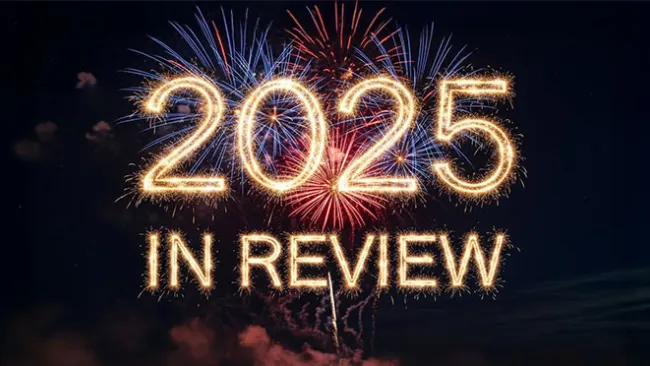New research from Forrester points to an emerging trend: consumers increasingly expect brands to take a stance on moral, social, and political issues. However, values-based marketing isn’t something that brands should just switch on. Join us as we sit down with Harley Manning, VP and research director of customer experience at Forrester, to learn how brands can take a thoughtful and strategic approach to making values part of the customer experience.
Transcript:
You're listening to see CX Pod by TTEC and the Customer Strategist journal.
Liz Glagowski: Hi, I'm Liz Glagowski editor-in-chief of the Customer Strategist Journal. Today, I'm here with senior staff writer Judith Aquino who recently attended the Forester CX NYC event. Hey Judith.
Judith Aquino: Hey Liz.
LG: So at the event, I know that Forester referenced that it's in its customer experience index, they found that more companies are becoming stagnant in delivering their CX and some brands are looking to try to rejuvenate them in new ways. So what, what did you find out?
JA: Right. So I had a really interesting conversation with Harley Manning, the research director of customer experience at Forrester about new research his team has put together that shows more and more consumers are taking a brand's values in terms of its social and political values into consideration when making buying decisions.
LG: That's really interesting. It's, it's not something brands had traditionally done.
JA: Right. And at the same time though, Harley made a point that there isn't one approach to value space marketing that brands, should use. There are actually many factors to consider. So we talked about those factors and how to be strategic about it.
Harley Manning: One of the key messages here is that you have to challenge common wisdom and you have to go look to the data, which is both qualitative and quantitative to figure out what your customers really want. Now when you, once you start down that path and trying to more deeply and systematically understand your customers, you sometimes get some surprises. Sometimes you get some disturbing surprises. And so one of the things you're gonna see on on my July talk about right after the break, is some data that shows that over half of the u s customers now consider the values of a brand before they buy from them.
JA: And that's not just millennials, that's across?
HM: Yeah, it's not, it varies a bit by demographics, but it's on average. If you look across the entire population, over half of customers are doing this some more so than others and what I've come to realize is that some people care passionately about this.
Some people think that it's not even a thing. When you look at the data, you see that more people care about it and don't care about it. So we've crossed out why and this happened pretty fast. So I'm sure this is quite surprising to a lot of companies that their customers are getting more tribal, not just in general but specifically with regards to who they want to do business with. So to your point, if you are a company, you have to have a strategy about this. You have to have a sense of what Rick will talk, Rick Parish will talk about, which is do we stand for something political, social, moral, or do we not and do our customers care about these issues or not? And then you have to make some hard choices, right?
JA: It sounds like a chicken or an egg type of question. Like are your values, something you agreed on, you defined yourself first or do you serve all of your customers and thinking about what, what's important to them? I can imagine some customers could see it as inauthentic to define for the company what values that should have.
HM: Yeah you're zeroing right in. On some of the key issues that are happening here. So first of all, we looking at it in a matrix that the two axis, I was gonna say two by two, but it's actually three by three as it turns out. And so the first axis is one of the things you just touched on, which is as a company, do you have these values? You can have your corporate values and not have a political or moral or social stance and that's perfectly fine. Um, you could as a company just say, I'm going to be very carefully monitoring the values of my customers and I'm going to make sure I reflect those values.
Or you could have deeply held political, social, ethical values. And the other axis is what do you do about it? You could do nothing. You could signal to your customers that, yes, I have or I reflect these values. Or you can try and build these values into your customer experience. So that gets you to nine different cells. Hugely important. And this is authenticity. So if you are a brand that does not have deeply held political, social, moral values and you try to communicate that you do, people are gonna pick up on that and it's not going to be receivable.
A flip side of that is let's say you do have those deeply held values and you try and hide it. Well these days it's hard to keep a secret. And so we see examples of companies that were being inauthentic by not being who they actually are.
Now, assuming that you do have these, and by the way, most companies, it seems we have yet to do additional full research on this, but our initial assessment is most companies aren't right now, are saying and/or claiming that they have these deeply held values they're traditional. They're essentially saying, no, we're just here to provide you with a great product and that's who we are and we're going to treat you well, but we're not going to tell you whether or not we believe in climate change or were Trump supporters or we are pro choice or LGBTQ. Just staying out of that debate and for right now that's fine because it hasn't peaked yet. And it may be fine for some companies for the indefinite future, but it may not. That's the thing you got to watch very carefully. If your customer has become so tribal that it goes from, I won't do business with you if you don't share my values to um, I won't do business if you don't share my values and then you better have values because that right there tells me you're a bad person if you don't have a bad company, if you don't have those values. Right. So that could happen. And in fact, given the segmentation of the market, it probably has happened with some customers.
JA: I'm trying to figure out if values are still, are we still in the stage of talking about them as a nice to have or is like the same way we used to talk about how important personalization is. Yeah. Now it's values.
HM: Yeah, no, no, that's, that's it. There are so many of those things, right? And how they come and go, uh, the values thing seems to be on the rise in America right now and there it's not so much we're not urging anyone here to, adopt values if they don't already have them. What we're trying to help them understand is how to figure out where they sit on that three by three matrix and then which of the nine boxes are viable and which are not. And then ultimately where you might want to move. So for example, let's say that you're a company that has deeply held core values. Chick-Fil-A, the great example of this, and Chick-Fil-A could have chosen to just pretend that this wasn't true, but they didn't do that. It's pretty clear. Everybody knows Chick-Fil-A. That's tends to be the first example
everybody thinks they could also have tried to have, I guess, no pun intended, you bake it into the experience of getting a sandwich, right? You know, it could be welcome, here's your Christian chicken sandwich. But they don't do that either. So what they do is that option of signaling their values, they signal their values by being closed on Sunday. They signal their values by when you walk into their stores, that music that you hear, that's hymphes. That's church music. Now, no lyrics. So if you are a part of the church going group who recognizes hympes, when you walk into Chick-fil-a and you hear that music, you're thinking, ah, this is a good place for me. However, if you're not part of that group and you walk in, you might think that's an interesting and very different choice of music, but you're not to pick up on it.
So they're not signaling, stay aware. Their signal is not saying stay away. Their signal is specifically to a particular kind of group saying this is a good place to be. And that's viable. And there, and there are some people who we, you know, we encounter them. Some people will say, no, I'm not gonna, I'm not going to go into Chick-Fil-A and have a chick-fil-a sandwich because, you know, I don't like their values that that is a, that is a thing. There are a lot of people who just really aren't all that caring about that. And then there are people who do care about it. And it's a positive, and I bring this up because this is I think illustrative of the kinds of things that are going to increasingly happen, which is you will have for any values you signal or any values you build into your experience. You're going to have those people who see this as a big plus and go there and you're going to see people who see this as a minus and stay away. And that group in the middle who doesn't care is getting smaller and smaller and smaller.
JA: And one more question around the I guess the data aspect of this. How do you prove out which, I guess which group you care about and what, of course, what, what CX metrics should be tied to the values of what trends are you seeing so far?
HM: Yeah. So first and foremost is you have to start measuring this. You have to say this has to be one of the things that you need to start understanding about your customers. So when you're surveying them about were you satisfied and did you get your order in time? You're also going to want to think about doing some studies where you ask them about their political and social beliefs because you need to know that because one of the worst things that could happen to you as a brand is that you get a shock and discover that your customers really care about something, that you weren't paying attention to. And that, I mean, that could be anything, but it's just in this case we have to be talking about political, social, moral values. So you have to start asking about those things. You have to start interviewing people about those things. You need the quantify because otherwise you risk having this runaway from you.
JA: Alright. But is this something that would only apply to the u s I could see with an over in Europe with GDPR regulations, this would be difficult to collect, like in terms of that type of data?
HM: Yeah, so it depends upon how you ask it. Uh, you can do qualitative studies too, where you can bring people in, you can just have conversations and you begin to understand it. I would say that in, in Europe, uh, I mean GDPR doesn't totally stop you from doing anything, although some days it feels like it's trying to, but the fact of the matter is in, in Europe and Europe is as polarized as the u s and you look at some of the elections over there and you look at some of the tribalism over there. So it's important for companies, to have a good sense of that, right? And with increasing levels of granularity, uh, even, even things that you think of as core values, like patriotism. So we probably, most Americans would say, yeah, I'm patriotic. Patriotism though, the exact way it manifests itself is very different
up in Blue Boston area where I live and down in red, Maryland and Virginia area where Rick Parish lives. So down there you might see a flag where the stripes are assault rifles and people think that's patriotic. They think this is your Second Amendment part of the constitution. This is me defending my country, defending my rights. Whereas someone else who would say that they're patriotic in the North might look at that and be horrified and in fact that's a real example. We would put up that image in front of a group of analysts to say, let's see what your reaction is. And it was like, "you just made that up." No, no, it's because you live in the Boston area. If you've never seen that, you've never heard of it. You don't know that that's a thing. And so that's what I mean.
It's really important to know whether your customers have these types of values and how they think of those values. So you need to actually drill down and get specific, you know, one place. It's interesting that we uncovered in our research. I had never heard of them, but now I'm fascinated by them. It's a regional barbecue chain called Mission Barbecue. It's down south. They have this big patriotic theme going on and they're serious about it because every day at noon, everybody in the restaurant, customers as well as staff, stops what they're doing and they stand up and they sing the national anthem. Wow. So if that's something that appeals to you, then mission barbecue is the place to be at noon. And that's a key point. This really gets you into segmentation because yeah, I frankly, I don't care what you're singing. I don't want to stop at noon.
when I'm eating and get up with a mouth full of food and I sing very badly, I didn't want to get up and sing anything. I didn't want to sing the Hallelujah chorus. I don't even want to sing my favorite song. I don't want to sing in public. And nobody has ever heard me sing, wants me to sing in public either. Right? So that's something I would, if I ever go to a mission barbecue, it would be, you know, after the noon song. But that's okay. If you're clear in your up front about it, it's when you get a bad surprise.
So a bad, bad surprise. Here's again something I didn't know that came out in the research. The husband and wife couple who I think there their husband, wife, they were a couple, they started started Curves, so Curves, messages we're the workout place for women, we empower women, you know, this is yeah, be with women. So very positive message. But this couple was actually contributing to conservative Christian causes. So they're not exactly pro choice. So when that got out and women started saying, wait a minute, I'm paying you money and you're turning around and taking some of that money and you're contributing to things, they're going to restrict my reproductive rights. I don't like that. Right. So if you have these values, you need to, this needs to be part of a conversation about what do you do about those values? Cause from an earlier point, you can't hide that.
JA: Right. And so how about how far out do you think it'll take before these, conversations around values start to affect, say the CX index and hmm, maybe we'll see a lift.
HM: I expect, given that we just saw things cross the 50% mark, that we're probably see it as early as next year. It might be a little hard to isolate. So data science is only so good, but I expect that we will start looking for it. Ah, well actually we'll start looking forward in this year's data and that's part of the problem for large data set until you ask the question and get a data scientist to go spend some number of hours looking at it. You don't know. But, um, I wouldn't be surprised if we didn't find the impact happening right now on some brands. It would be brand by brand.
JA: Well, thanks so much for the really interesting conversation.
To learn more about bringing Humanity to business. Come see us at TTEC.com or subscribe to our journal at CustomerStrategistjournal.com. Thanks. See you next time.














